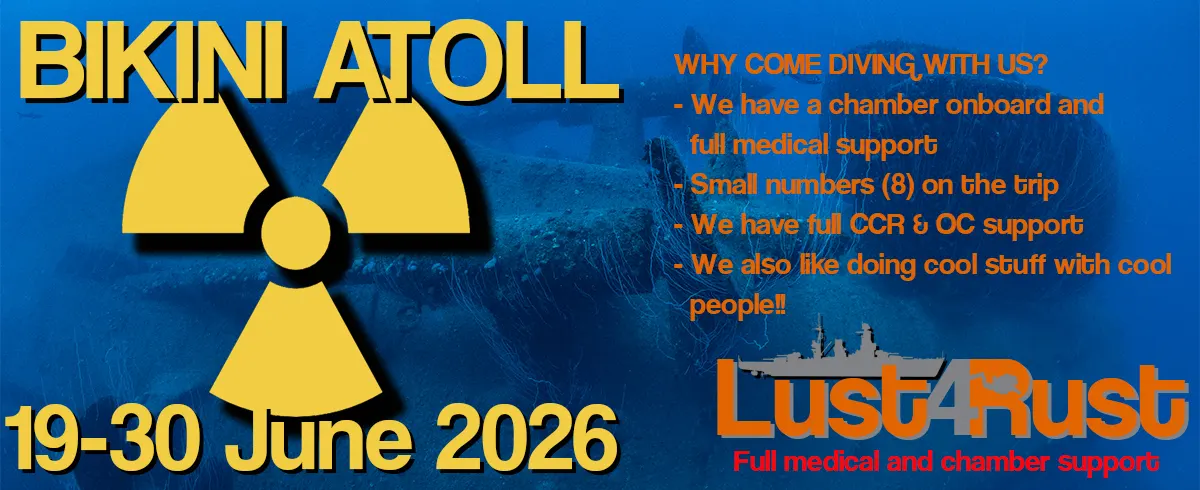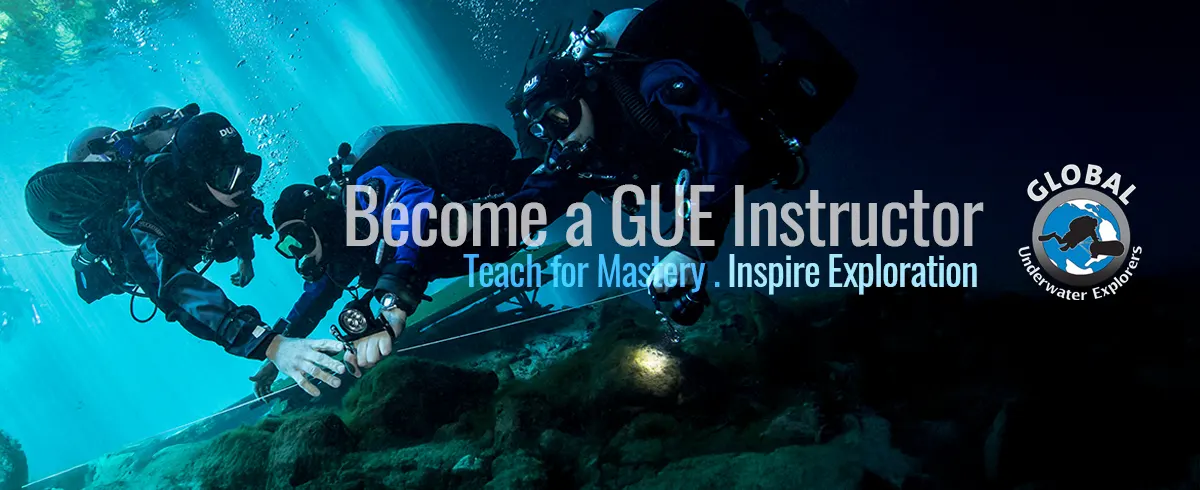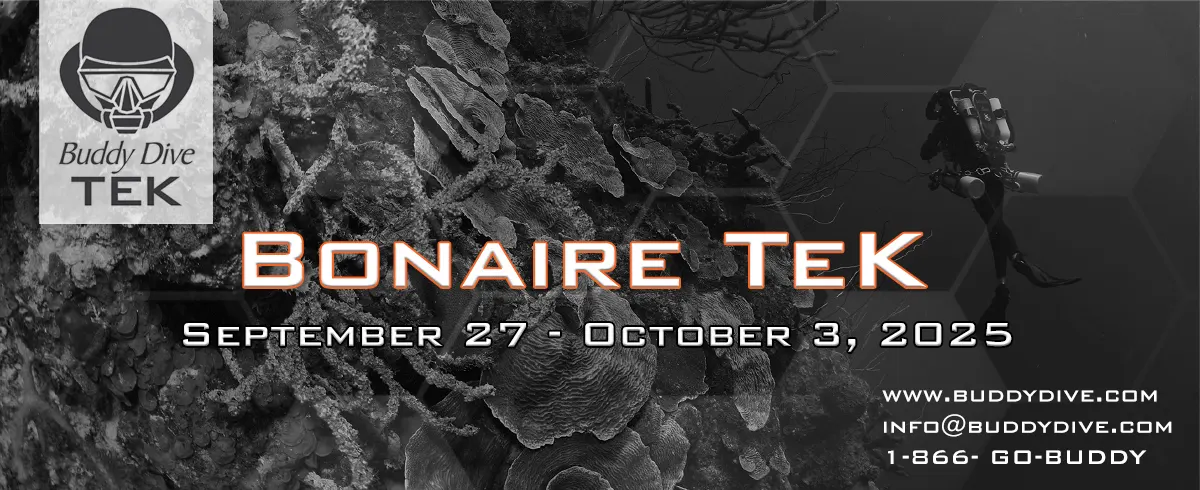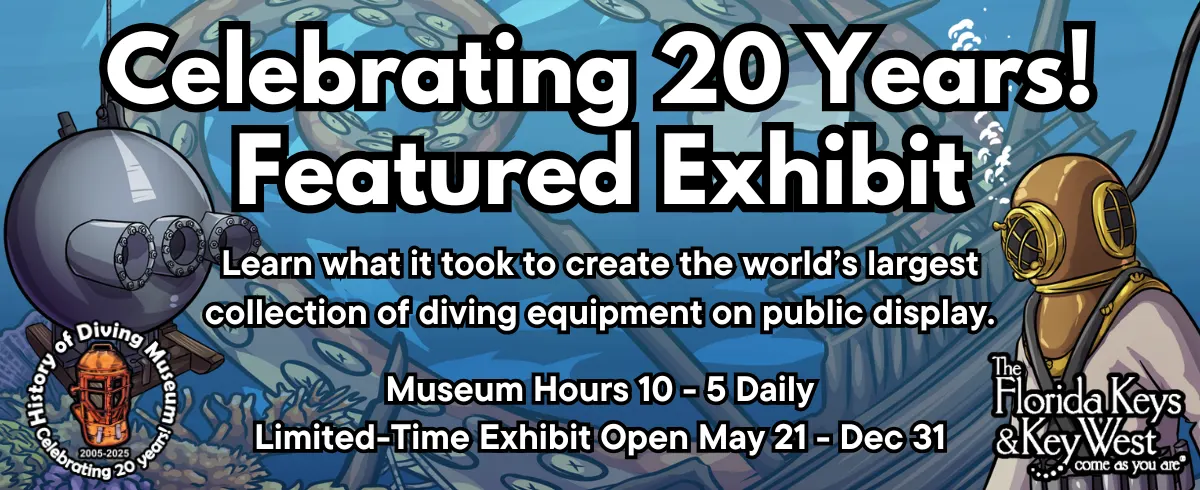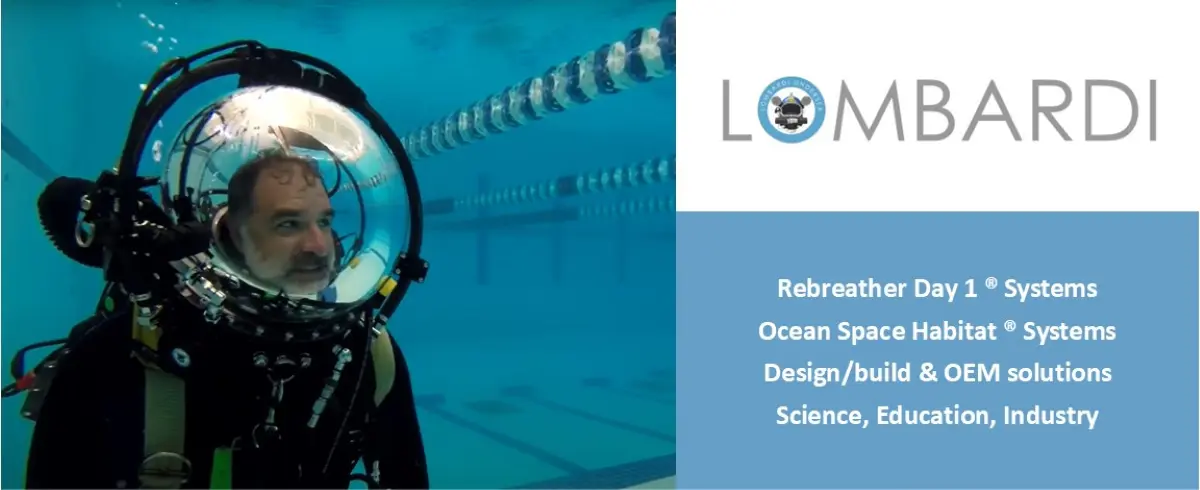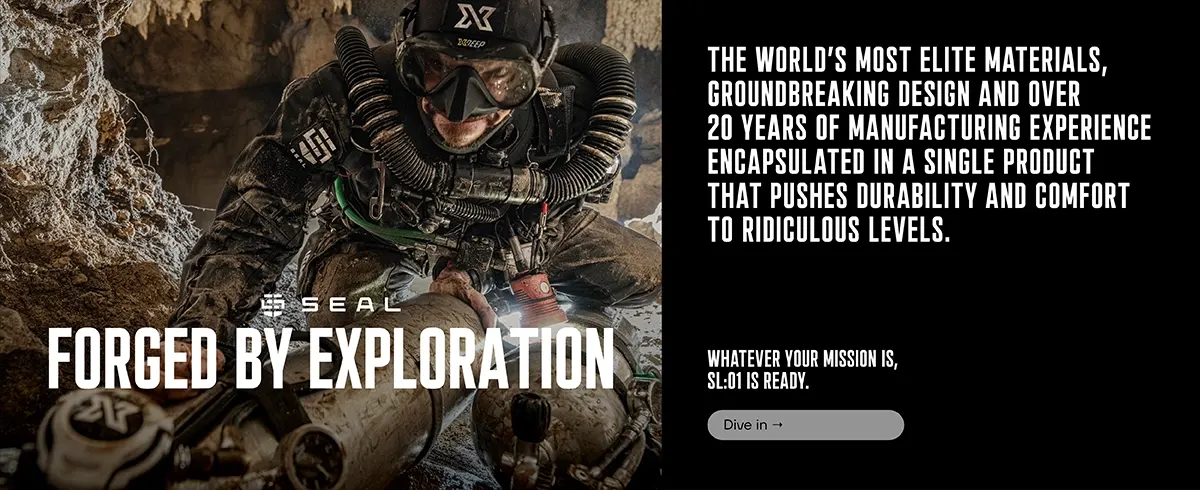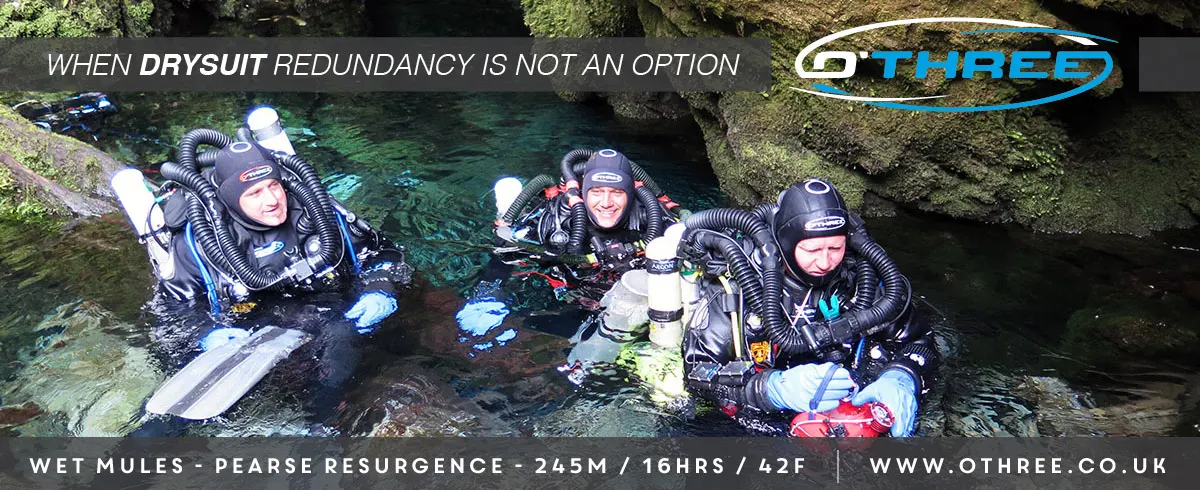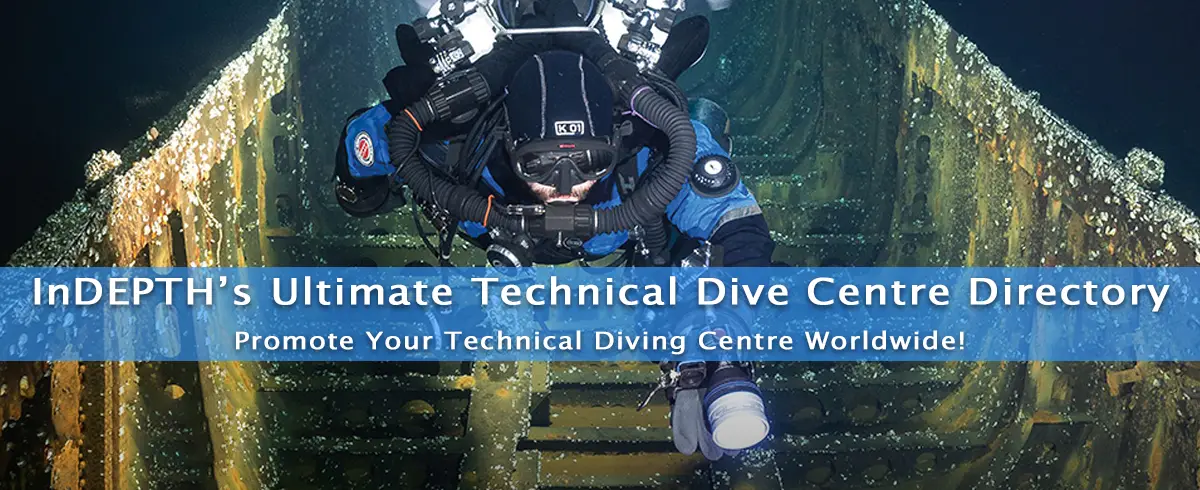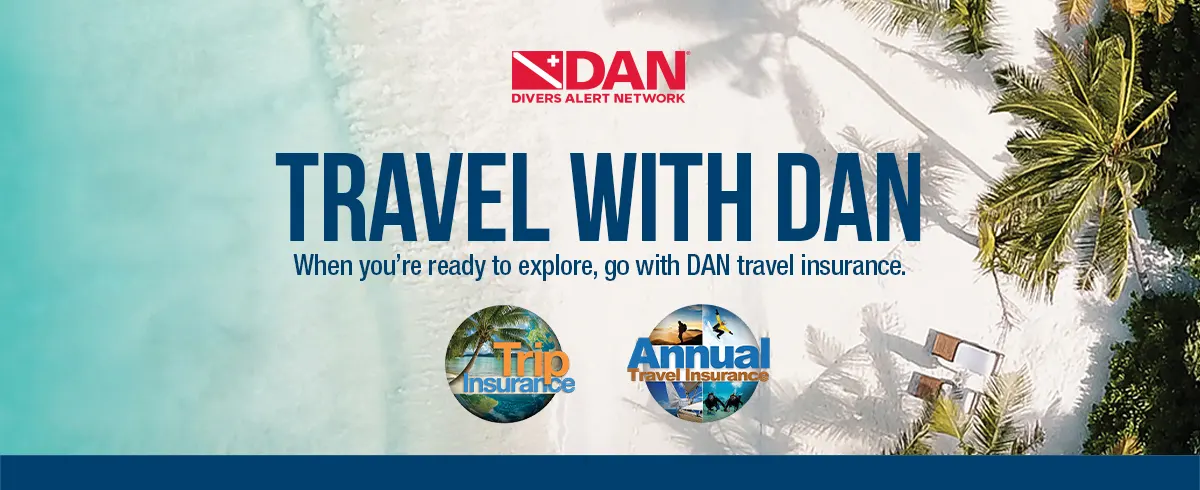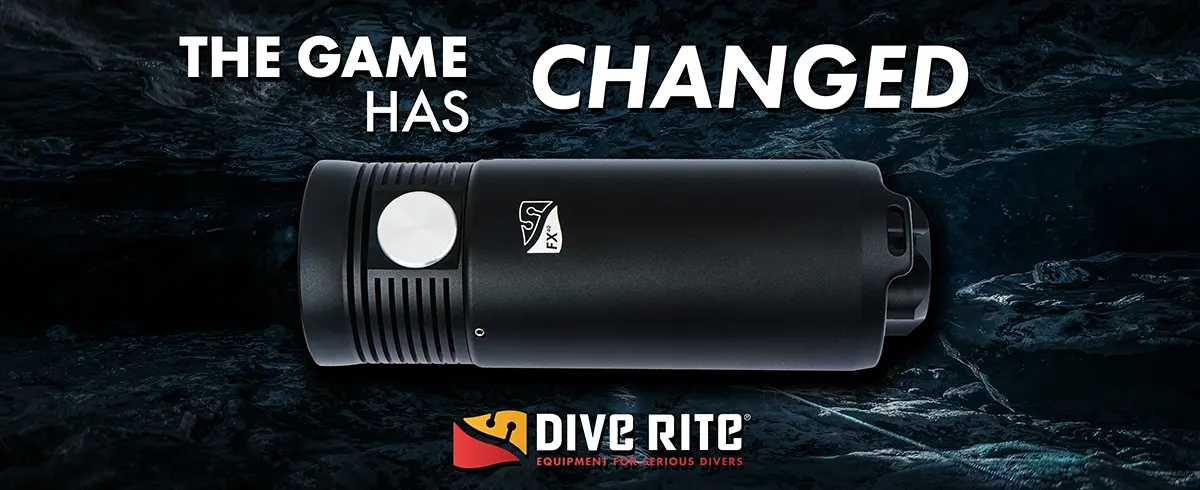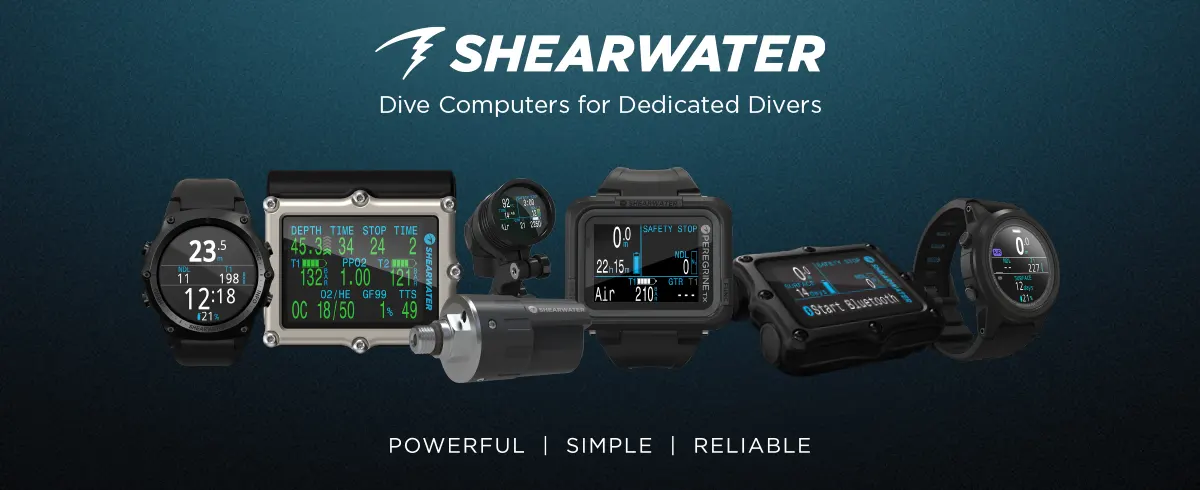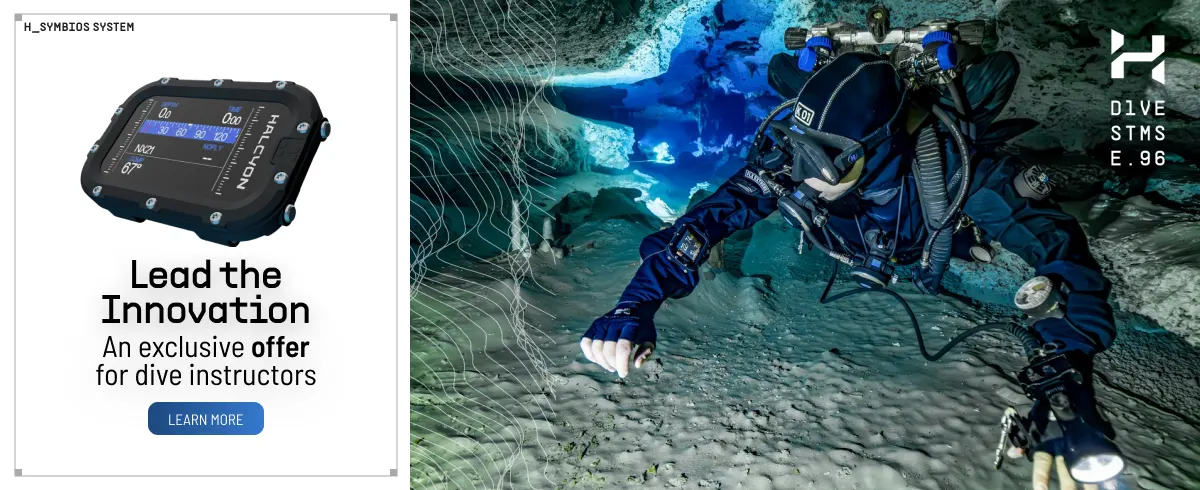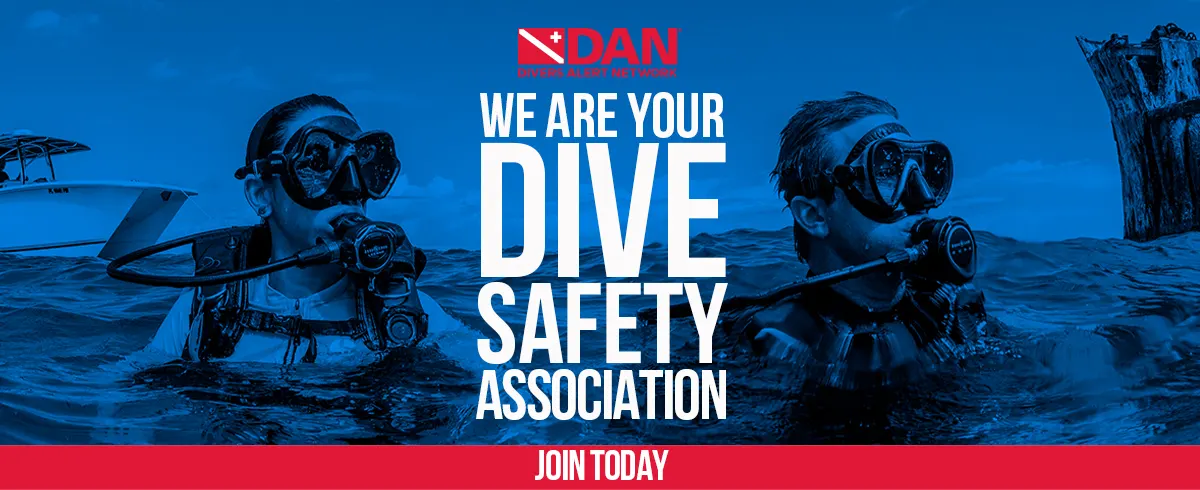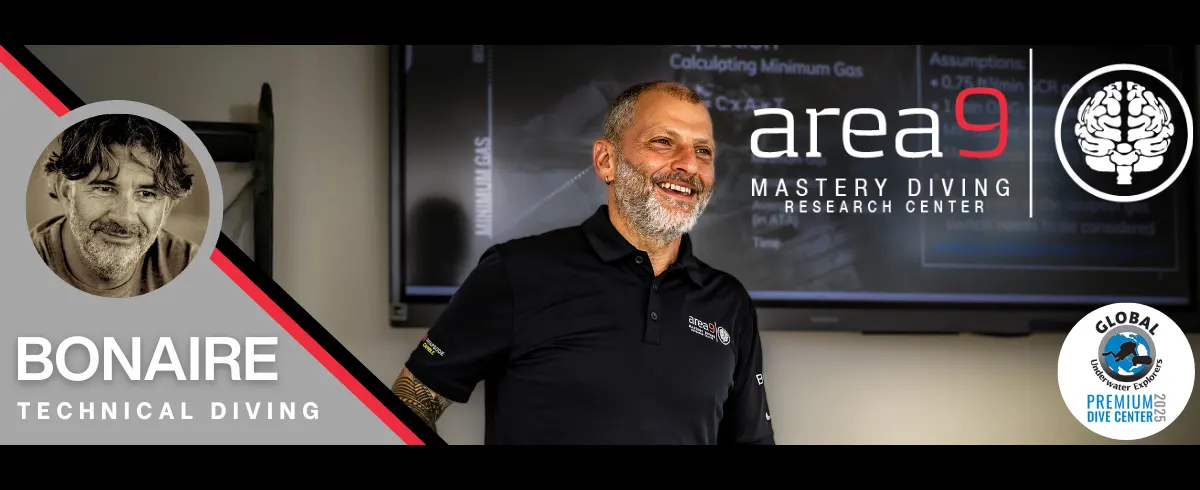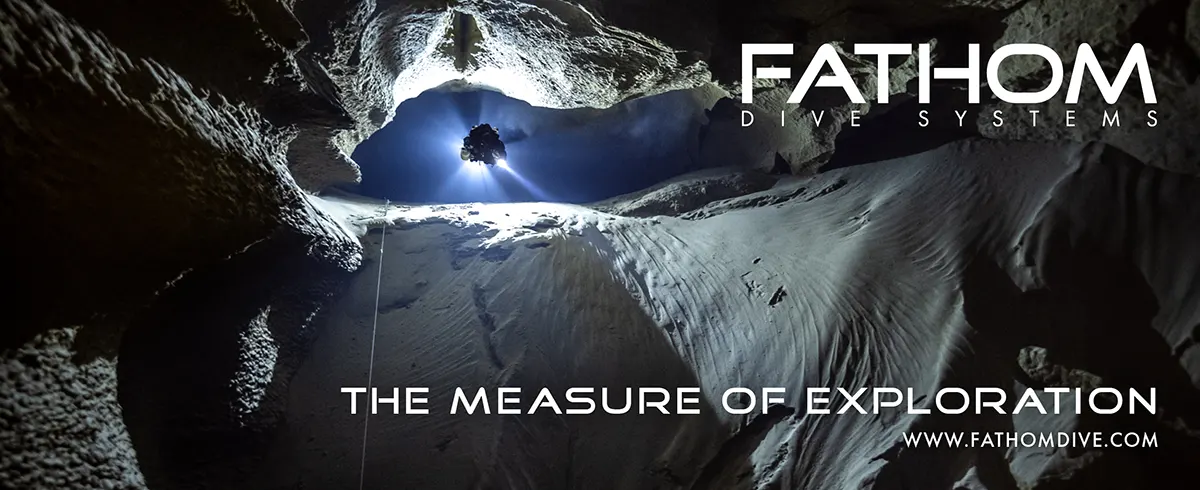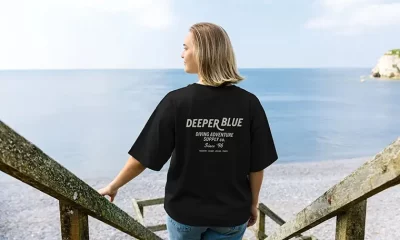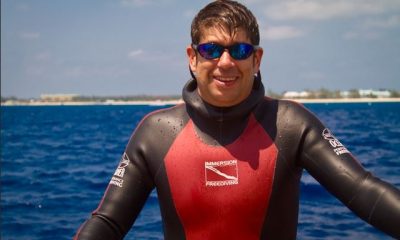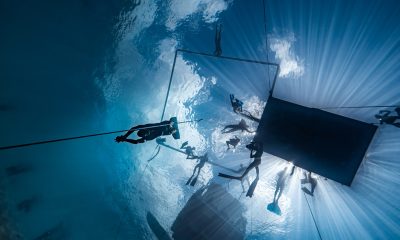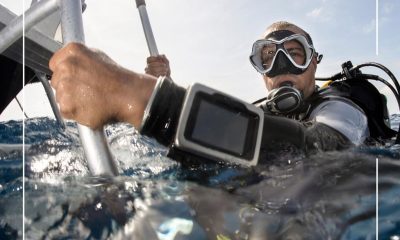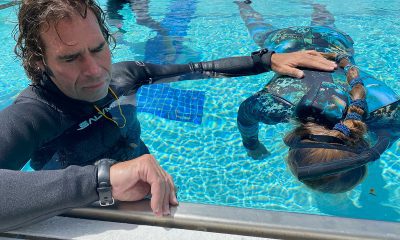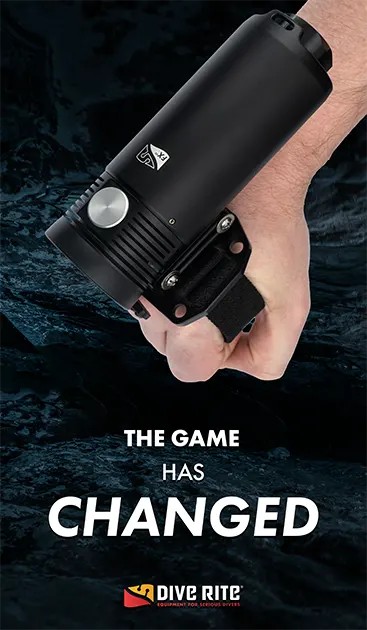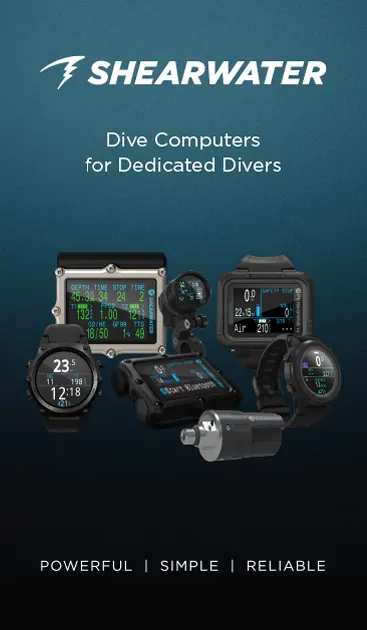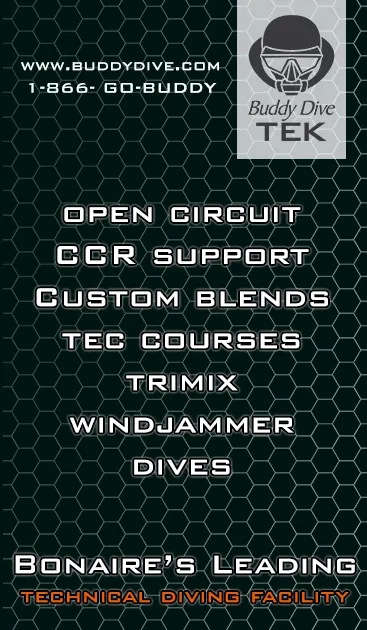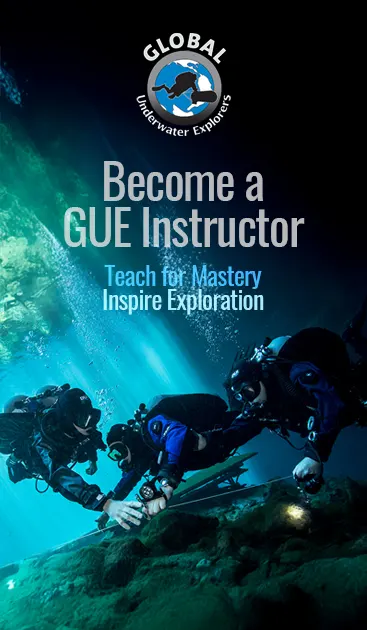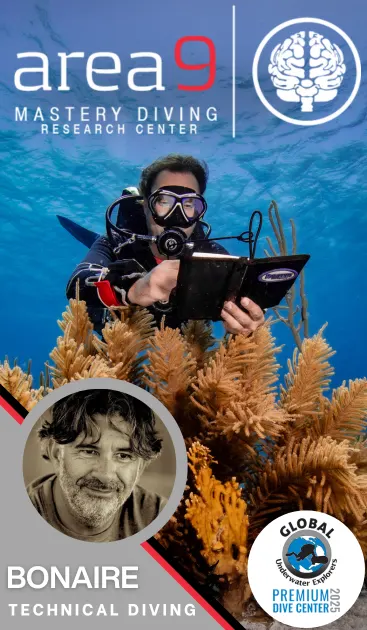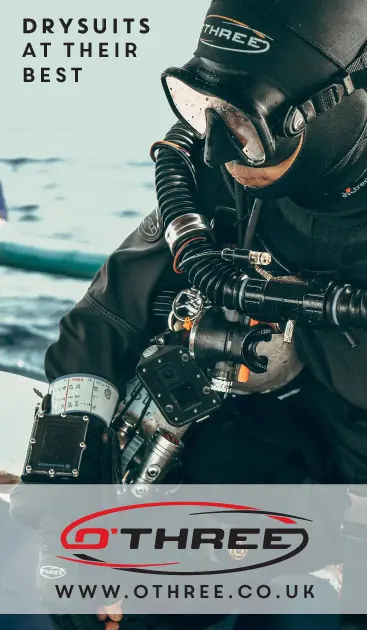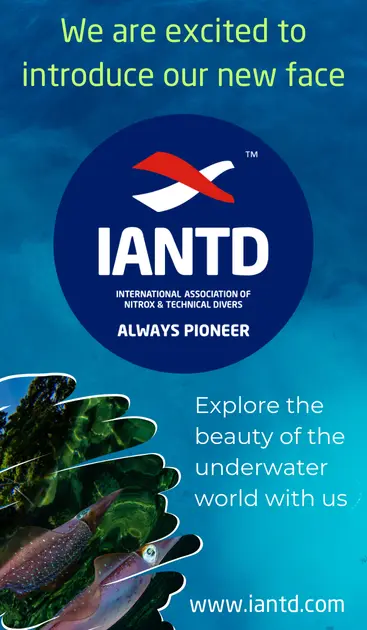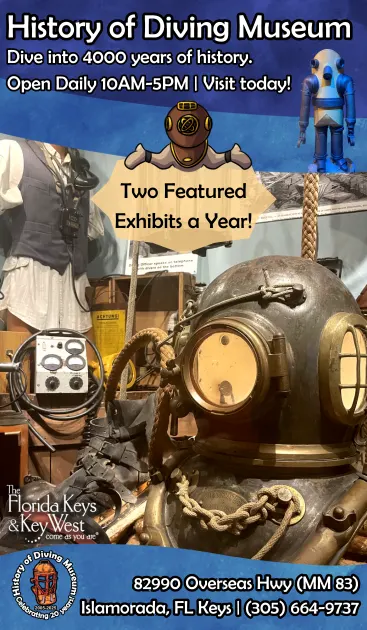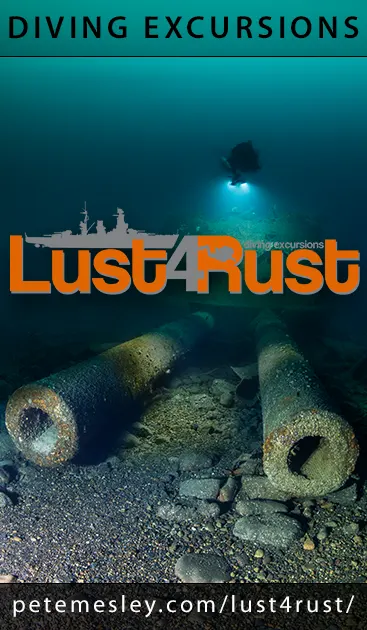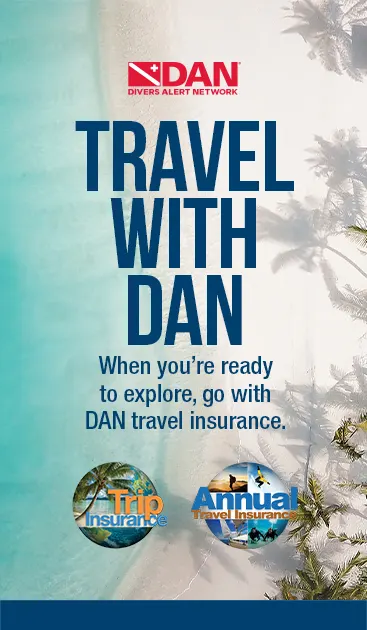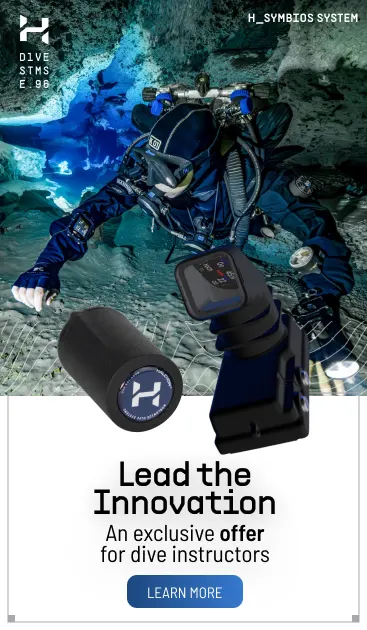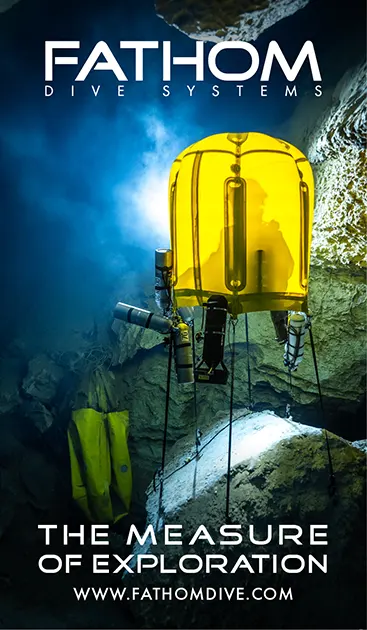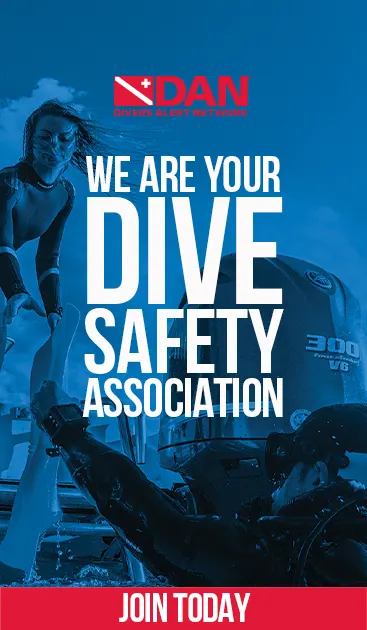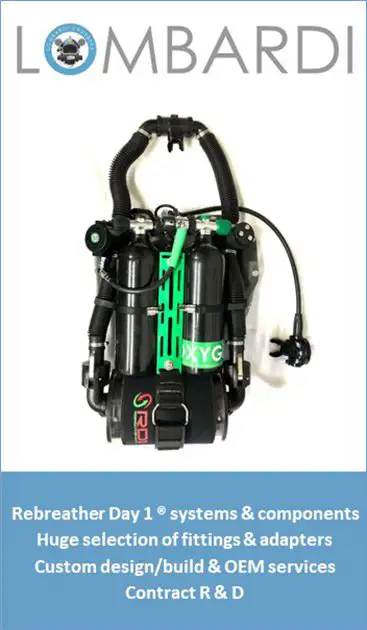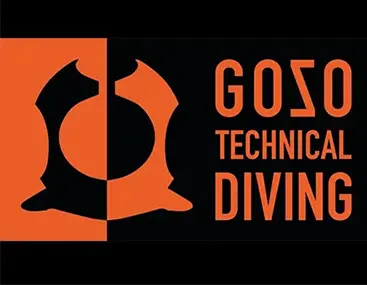Community
Twenty-five years of Press, and Still Holding Their Breath. We Get Down With DeeperBlue’s Stephan Whelan
Arguably one of the supergiants in the sport diving firmament, the pioneering media platform DeeperBlue.com is celebrating its 25th anniversary! From helping to nurture competitive freediving back in the day, to becoming a go-to site for all things scuba, while helping to turn out new diving journalists, founder/publisher Stephan Whelan aka “Papa Smurf”and his team have contributed mightily to the diving community. InDepth chief Michael Menduno sat down with Whelan to get to the bottom of the DB story.
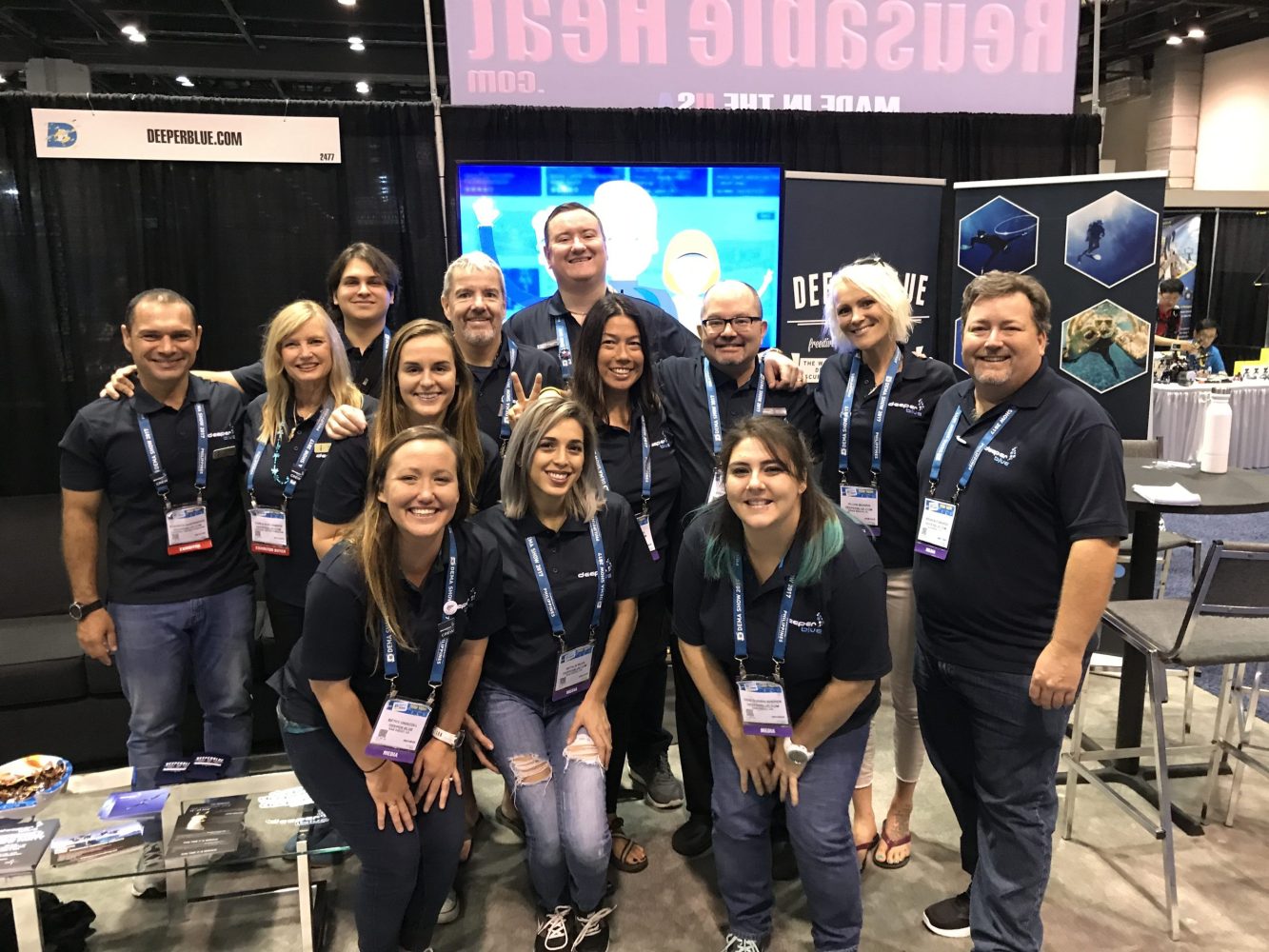
By Michael Menduno
Header image: DeeperBlue.com team onsite at DEMA 2017. All images courtesy of DeeperBlue.com.
🎶 🎶 Predive Click: Don’t You Worry Child by Swedish House Mafia
Having written about diving for over three decades, and launched and published two diving magazines—aquaCORPS and InDepth, I appreciate what an enormous challenge running a dive media business can be. That’s why I find 43-year old British publisher Stephan Whelan’s achievement with DeeperBlue.com so impressive. His depth-full, online diving media platform is celebrating its 25th anniversary of continual publishing this year! Only a handful of sport diving publications in existence or now defunct, can lay claim to such a milestone.
What’s more, the multi-faceted, diving content provider has arguably become one of the powerhouse brands in our industry boasting more than 1,000,000 pageviews a month, a 21,000 plus strong email list, a mobile app, more than 45,000 registered forum members, close to 465,000 social media followers, a new award-winning podcast and a plethora of content now totaling close to 10,000 published news and feature stories from more than 300 contributors. His fiercely team of loyal writers, photographers and fans—dubbed TeamDB, aka the “Smurfs”—can be seen talking to news-worthy divers and vendors at dive shows around the planet—remember those? Needless to say, the annual DeeperBlue Friday party at DEMA, remains stuff of legend. Just ask fellow Brit Paul Toomer.
A diving wunderkind in his own right, Whelan, known as “Papa Smurf,” to his friends and minions, made his first informal try-dive at age eight in a pool in the Canary Islands while his parents were on holiday. He was later certified at 13 years old. By age 16, he had earned his British Sub Aqua Club (BSAC) instructor ticket, and soon after became president of his dive club at De Montfort University, Leicester, UK where he was studying computer science. He launched DeeperBlue.net—as it was originally known—during his first freshman year in 1996, in order to feed his burgeoning passion for diving, and encourage others to join in.
Competitive freediving was just in its infancy in the mid-1990s. Whelan saw it as a low-cost entry point to get his fellow college students in the water. Sometimes being in “the right place, at the right time” makes all the difference. Similar to the role that my magazine, aquaCORPS Journal (1990-1996) played in the emergence of technical diving, Whelan’s DeeperBlue was akin to the aquaCORPS of competitive freediving, at a time when mainstream dive pubs were focused on compressed gas diving.
DeeperBlue not only served as the source of needed accurate information, but also through its curated online forums, served as a hub for the emerging global freediving community, where up and coming breath-hold pioneers like Tanya Streeter, Herbert Nitsch and William Trubridge, were active contributors. Within a decade, DeeperBlue began offering structured freediving classes at a large training facility in Portsmouth UK, at a time when freediving training was still a bit hippy dippy, and also worked with Association for the Development of Apnea (AIDA), and some of the national federations to help shape freediving education.
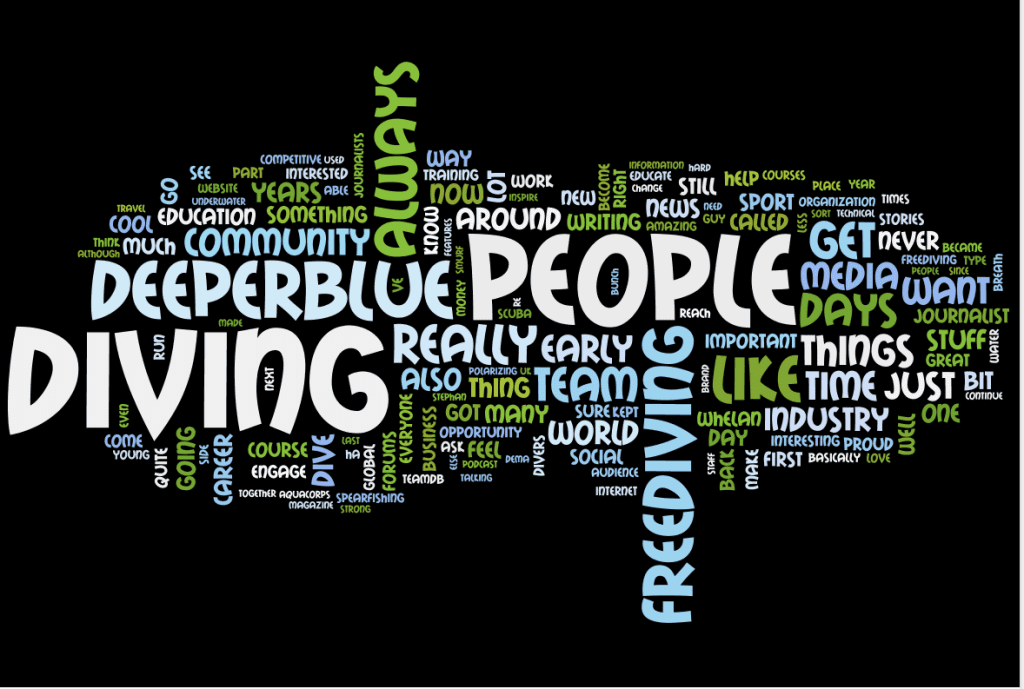
Eventually, with the growth of the Internet and emergence of social media, DeeperBlue both grew its platform, and expanded its coverage to include scuba, dive travel and importantly, ocean advocacy, all the while helping not only to nurture a generation of new divers, but a new crop of diving journalists as well.
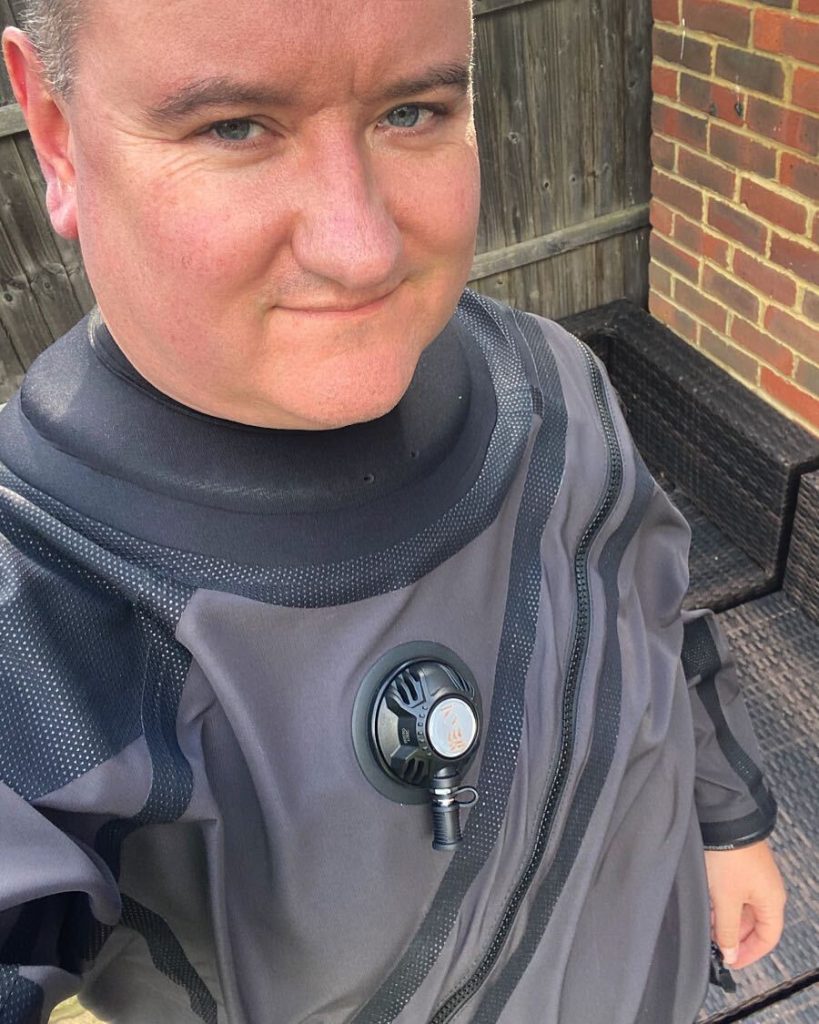
Ironically, through it all, Whelan, who regards himself as a businessman in the diving world vs. a diver in the business world, has maintained his day-job in the software industry, which is perhaps emblematic of the nature of the avocational sport diving industry. Though no doubt it has likely also eased some of the economic pressures that are endemic to our diminutive, though arguably oversized in significance, $17 billion* global industry. After all, we are the people that journey beneath the water that covers 71% of the planet! Why do they call it Earth?
Despite his laudable success, the cherub-faced, veteran diving entrepreneur cum evangelist remains an enthused, thoughtful, soft-spoken, sweet heart of a guy—in Brit speak: a proper sort of bloke. We caught up with Whelan just as the UK was emerging from its last lock-down. Here’s what the big Smurf had to say.
* Global equipment and training each account for $1.9 b, dive travel: $12.9 b other: 0.4b. See: “What is The Size of the Scuba Industry,” by Darcy Kieran, principal Business of Diving Institute
InDepth: Stephan, I want to wish you a BIG CONGRATULATIONS! Very few media platforms have survived, let alone thrived, for 25 years in our industry. What is it about diving that has kept you in the game for all these years? That seems amazing.
What keeps me in diving? The same thing that got me in it in the first place. It was a super cool thing to do, to talk about and to write about. My mom and her side of the family were all journalists, so I always had this bit of passion for being a journalist myself. Although I never formally trained as a journalist, I still learnt a lot on how to be a journalist from my family.
I was also very into computers in those days. Of course, I still am. It was the early years of the Internet, and I was learning how to code a website. These days you click a button and “Presto” you have a website. In those days you had to open up your text editor and actually, physically, type open angle bracket, write your HTML code, type close angle bracket and all that kind of cool stuff.
So, DeeperBlue combined writing, technical stuff, and diving, which I have always been very passionate about. That’s what kept me coming back. And it really has just kept evolving ever since, which has kept it interesting.
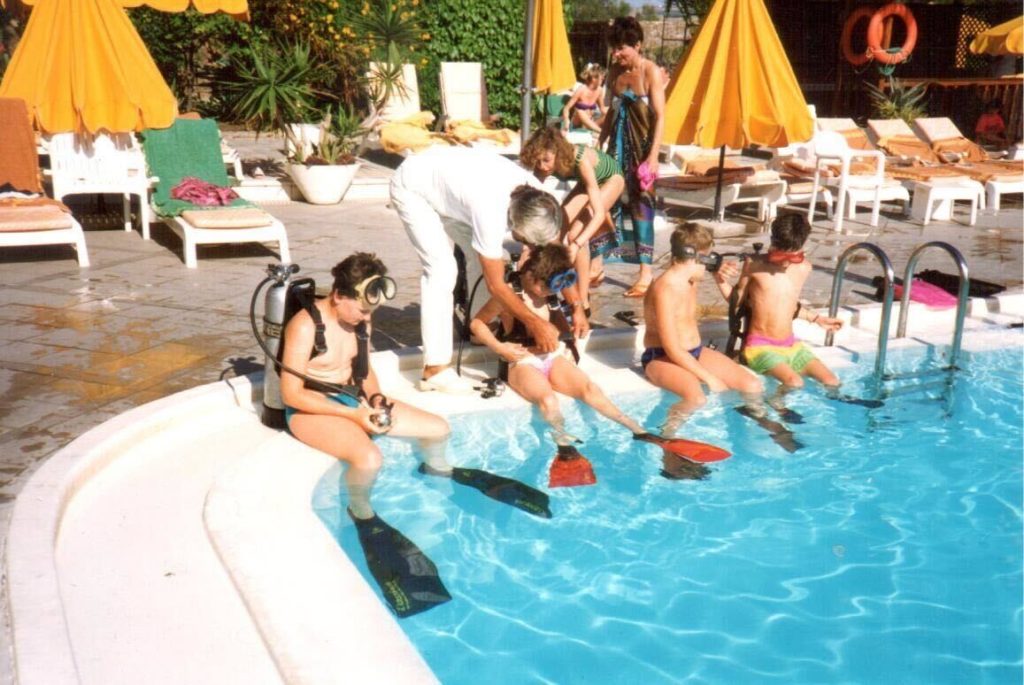
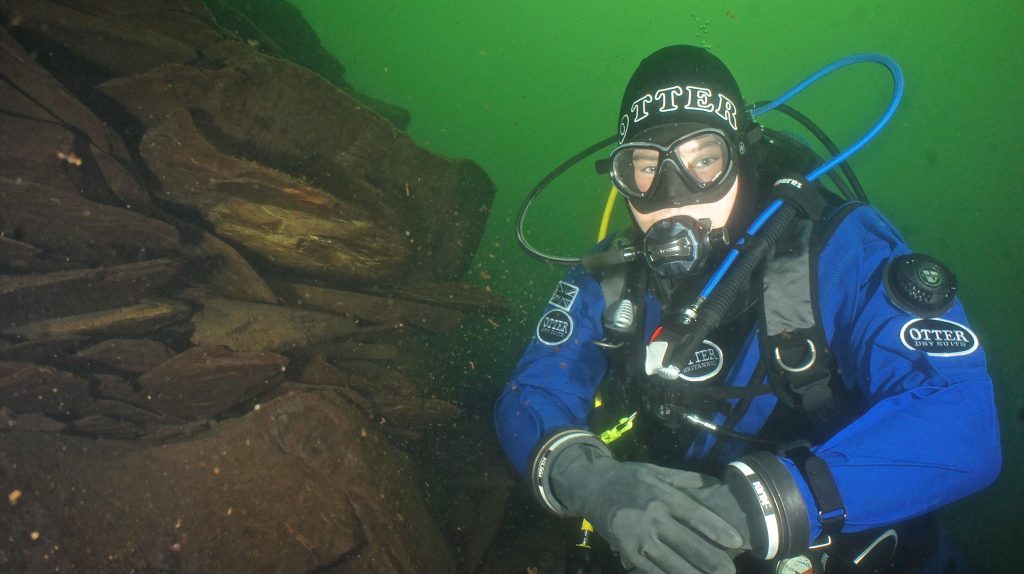
DeeperBlue, which is now DeeperBlue.com, has seen a lot of changes since your college days!
Absolutely. In the early days, DeeperBlue was much more of what we would now call a blog. After publishing a bunch of my own stories, I got approached by a few other people who wanted to contribute, and that was pretty cool. Then in 1999 we opened the forums and that took off because it was before the social media titans of today – Facebook, Instagram, Snapchat and Twitter. So, it became this hub of the community and less about writing articles about diving and more about engaging with the community and talking about stuff.
Although I started by writing about scuba, we very quickly focused on the freediving side, which was new and interesting at the time. Though holding your breath and going underwater is one of the oldest sports on the planet, from the competitive side of things, it was the embryonic days of competitive freediving at a global level. Later we pivoted back to being more journalistic and writing articles, features and news.
So, the focus of what we do has shifted many times and that has kept us fresh and interesting. We’ve always tried to adapt to how our audience is interacting with us, particularly because I’m always very passionate about getting young people into the sport, and not just old fogies like you and me. And how do you get young people in the sport? You have to go where they are, understand what they are interacting with and what they want to do. So, that always keeps things new.
Are you still in touch with that original passion?
Ha! I always remember what my diving instructor told me when I was doing my dive leader training— the divemaster equivalence in the BSAC system. He said, “Are you sure you want to do this? Because once you do, forevermore, diving is never going to be about you and what you want to do. Instead, you’re going to be worried about everyone else and what they are doing.” I think I was like 15 at the time and I was like, Yeah, sure. What do you know? It sounded ridiculous to me.
Very quickly I discovered he was right. Now, whenever I go diving, I’m always worried about everyone else, how they are doing on air, is everyone OK, etc. Ha! I suppose I should do as my nickname in the community is Papa Smurf, so I’m always looking after the Smurfs in the village.
Reading about the early heady days of DeeperBlue.net and some of your adventures, reminded me of the early days of tech diving. It really seemed to me that early DeeperBlue was very much akin to the “aquaCORPS of freediving.” Talk to me a little about what freediving and the freediving community was like back then.
Understand that I didn’t set out to engage with the freediving community and help drive the conversation. Because I was involved in young people’s diving education, I came at it from, how do I get a bunch of poor students to get interested about being in the water? My first thought was snorkeling—it was an interesting and importantly cheap way of getting people in the water. I began researching who else was writing about snorkeling, and I found a website called Internet Freediving and Snorkeling Magazine run by a chap called Cliff Etzel.
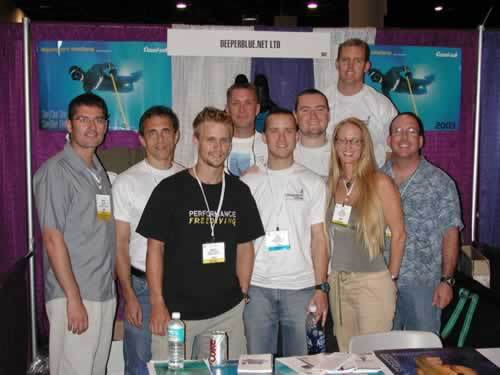
We started chatting and I said, “Look, would you want to team up?” He was really interested because it was quite hard and expensive to do things on the Internet in those days and he was running out of steam. So, I said, “Why don’t you concentrate on doing the writing bits around freediving, and I’ll do the scuba writing, as well as the technical, business and money side of the website.”
Competitive freediving was in the very early days and there wasn’t much information out there. There was an embryonic community starting to build from a competitive standpoint. Films like The Big Blue had come out and were encouraging people to do this crazy sport of holding your breath and go underwater as long as you can. But it was all very regionalized, very driven by Europe. France, Italy, Greece, countries where freediving was part of their identity and culture—much of it focused around spearfishing.
Of course, when you get a bunch of competitive divers together and they’re like; I can go deeper than you, I can hold my breath longer than you. That’s where it grew from. But at the time, there was nowhere to share the information, nowhere to engage with others. Remember this was before social media. That’s where the DeeperBlue forums came in. People immediately gravitated to them. It enabled divers to communicate and share information. We prided ourselves on the fact that we were a very friendly, welcoming forum and we kept it tightly moderated. There was no such thing as a stupid question. People really enjoyed engaging with it.
Who were some of the big names posting on DeeperBlue Forums?
You can look back on some of the archives and see so many of the world champions of that time, and even now today. Like William Trubridge. One of his early posts was something like, “Hey everyone, I am a guy called William Trubridge. Does anyone know about this really cool place in the Bahamas called Dean’s Blue Hole? It looks like a pretty interesting place to go freediving.” Of course. Now he’s based at Dean’s Hole and holds world-class competitions there as well as a number of world records.
Tanya Streeter was there. Herbert Nitsch—now the world’s deepest freediver. There was a Canadian guy called Eric Fattah that was really interesting. He was kind of the geeky, mad scientist-type person that was always experimenting with both the science of freediving as well as hacking his own body to do things differently and better and stuff. He was a great guy.
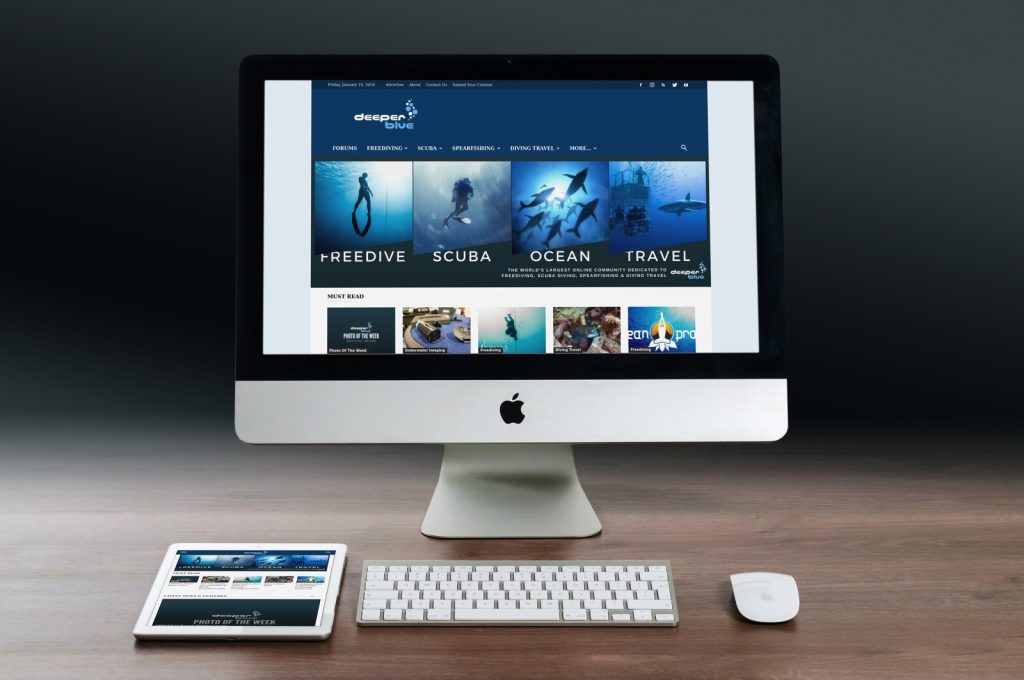
Ah yes, Mr. Fattah! I wrote about him and Kirk Krack in that article on technical freediving that I did for DeeperBlue in 2019. Eric was the founder of Liquivision dive computers.
Yes, he was. Of course, we also had Kirk Krack and Mandy-Rae Cruickshank in the forums. I mean, the list goes on and on. Anyone who was anyone in freediving would have been on the forums at some point. Some people loved them, and some others didn’t—the forums could be quite polarizing, just like social media is today. There was a lot of misinformation on there as well.
I remember the early tech forums! OMG. There were some all-out drag-out wars, and I am not going to even mention the chief stroke-meister! Ha!
They were exciting times but also very hard. Humans have a tendency to not treat each other very nicely online so we had to moderate them to make sure that people weren’t spreading science that was wrong or things that were dangerous and that sort of stuff because you were immersing yourself in a non-breathable liquid and holding your breath with no life support equipment. So, there was a bit of a danger where somebody could push themselves in the wrong way, and could injure themselves. So that was always something that we felt a very strong duty of care to do while not stifling the freedom of expression that comes with a global forum.
How about training? In 2004, you started offering freediving classes. Did that come out of a need in the community for education?
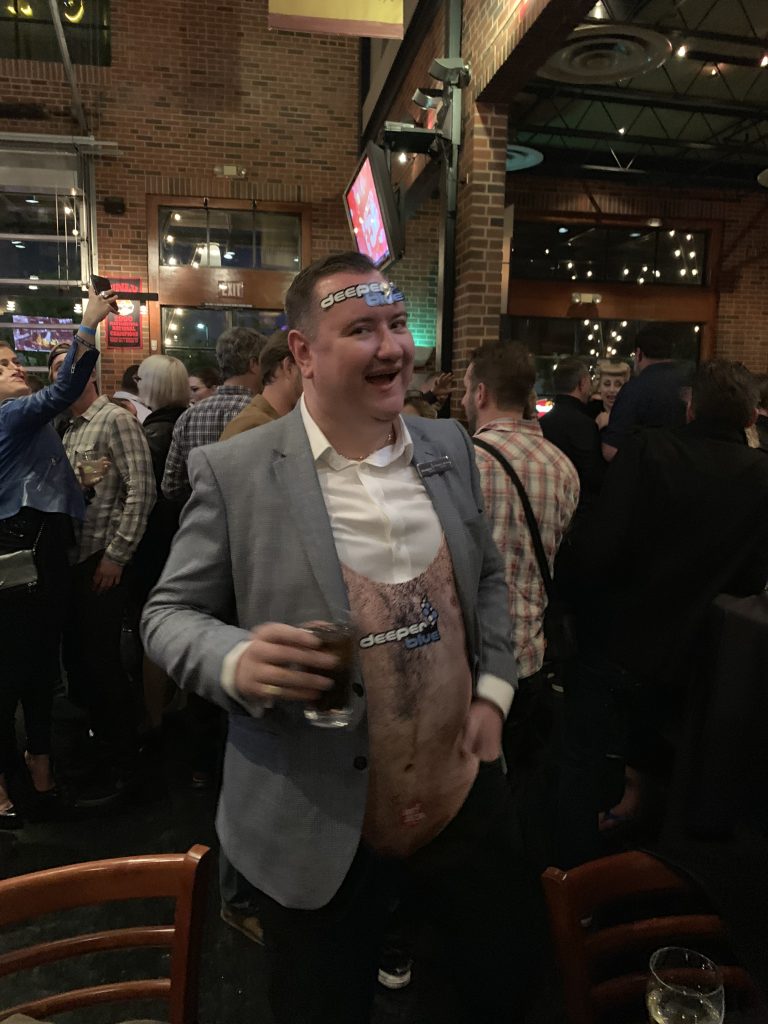
There was a magazine in the UK run by a chap named Howard Jones called FreeDive Magazine. He also ran a number of the early international competitions, and had the contract to run courses at a military facility based down in Portsmouth. It used to be called the Submarine Escape Training Tank (S.E.T.T) at HMS Dolphin. It was just shy of a 30 meter/100 ft deep dive tank. It was manned by Royal Navy specialists and used to train submariners to escape from sinking submarines. Unfortunately, Jones’ magazine folded in the early 2000s and the courses stopped.
We saw it as an opportunity. I teamed up with a, now dear friend, Emma Farrell, who is still very active in the freediving education circles runs a company called Go Freediving. She and I put our heads together and were like, why don’t we run the courses at the S.E.T.T? There’s a need for it. It’s a great facility and a great place for training beginners.
Again, for me, it was always about how do you get new people into the sport. My diving career has never been about doing advanced, crazy stuff. It’s been about how you get people interested in exploring and identifying with the underwater world.
Evangelist!
[Whelan smiles]. We became heavily involved in helping to shape early education for the International Association for the Development of Apnea (AIDA), and some of the national federations. We sat on education committees. We helped shape and formulate a lot of the early courses. All of that is lost in the mists of time now, but we were very heavily involved in doing those sorts of things. And it was cool.
We ran courses until 2010 I think—a six year run. It was great to see all these people sign up and learn to freedive while I got to spend my weekends bobbing around. It was beautiful. The water was body temperature, so you could be in shorts, speedos and or a bathing suit and spend the day going up and down.
Again, it sounds similar to early tech diving. In the beginning everyone was basically self-taught; you mentored with the people who knew what they were doing. It seems like freediving was like that as well—there was a need for formalized education.
At the time, North America was leading the way with people like Kirk and Mandy who had created Performance Freediving International. Martin Stepanek was just setting up Freediving Instructors International. Those organizations were very much leading the way as far as education. In Europe you also had people like Umberto Pelizzari who had Apnea Academy, a very Italian-centric type organization. We were trying to be different and to create a professional structured program.
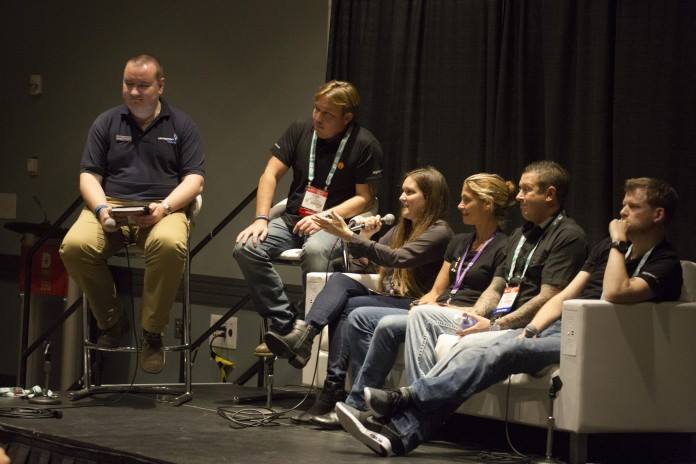
Because it was a bit unstructured in the beginning?
In the early days, I like to describe things as a bit hippie dippy in the freediving world. You had somebody doing yoga on a beach in some beautiful destination, who would invite their mates to come and learn to do some freediving and they’d barter something in exchange for the course. Whereas I was like, “Look, if you want this sport to grow, you’ve got to put a real business model around it, so that people can earn money.” So that’s what we did.
I wanted to make sure that all my instructors got paid a decent amount of money for giving up their weekends to come and teach. We were also one of the first freedive training organizations, to have proper insurance, business insurance rather than just personal instructor insurance. It cost an absolute fortune—you can imagine the underwriters looking at us going, “So you’re going to get a bunch of people to hold their breath and try and drown themselves. That’s basically what you’re trying to do.”
It took them three or four years to appreciate that we never had a single incident. We were not about having any loss of motor control or blackouts or anything like that. It was all about doing it safely and in a controlled manner. Eventually that became the norm.
Freediving has come a long way since those days, and DeeperBlue was one of the pioneering organizations that has helped it to get there.
It’s amazing to see how far it has come. There’s a huge global community. Nearly every single diving agency has a freediving program of some sort now. The teaching and business model have become fairly standardized. There’s still a strong sense of community. Education is really important and so is competition.
There are some simply amazing, mind-blowing competitions these days. I’m really pleased to see where freediving is now.
Again, I want to congratulate you on creating an amazing media platform! A million page views a month. Wow! DeeperBlue has enormous reach and engagement!
Essentially, because we are quite diverse, we have become a media brand that people engage with in any number of ways. It changes every day, but I’m always very proud that we have an incredible reach.
As you know I have a whole separate career in the computer software world. I was at an event last Wednesday chatting with the guy that heads up financial services for a software company I work for and he told me “I was talking to a friend of mine who is a very keen scuba diver and so I asked him, do you know DeeperBlue? And he answered, “Yeah, I love DeeperBlue. It’s fantastic!” Made my day!
Ha! So, it spills over to your day job, eh? I am going to ask you about that.
Interestingly, one of my proudest moments in my whole diving career—my DeeperBlue career—happened about five years ago. I was in my local town, I was going to lunch at a restaurant wearing my DeeperBlue jacket and a waiter went, “DeeperBlue, that’s that diving website right?” I said, yeah, that’s me, I run it. He goes, “that’s really, really cool, I’m on it all the time!” We had a bit of a chat. After lunch, I went to get some diving images framed at a framing shop and the female clerk goes, “DeeperBlue? You’re kidding me I follow your Instagram and was just on it. I love all the stuff that you do.” I’m like, this has made my day. It made me feel like diving royalty; people know who I am.
Of course, the thing is, it’s never been about me. Although people in the diving community associate me with DeeperBlue, I purposely never push myself as the brand. The brand is DeeperBlue. I’ve got a truly amazing team; I say to people that I stand on the shoulders of giants! It’s the team that does all of the work. Yourself included. You’ve contributed stories. It’s everyone in the ecosystem, the staff ecosystem, the TeamDB ecosystem, who are the ones that are really driving the brand— they are the heroes. I just happen to be the idiot that set it up, basically.
Idiot savant maybe! Ha! Let me ask you about your team, because it’s impressive. There are quite a few publications these days that are powered by just a handful of people, InDepth included.
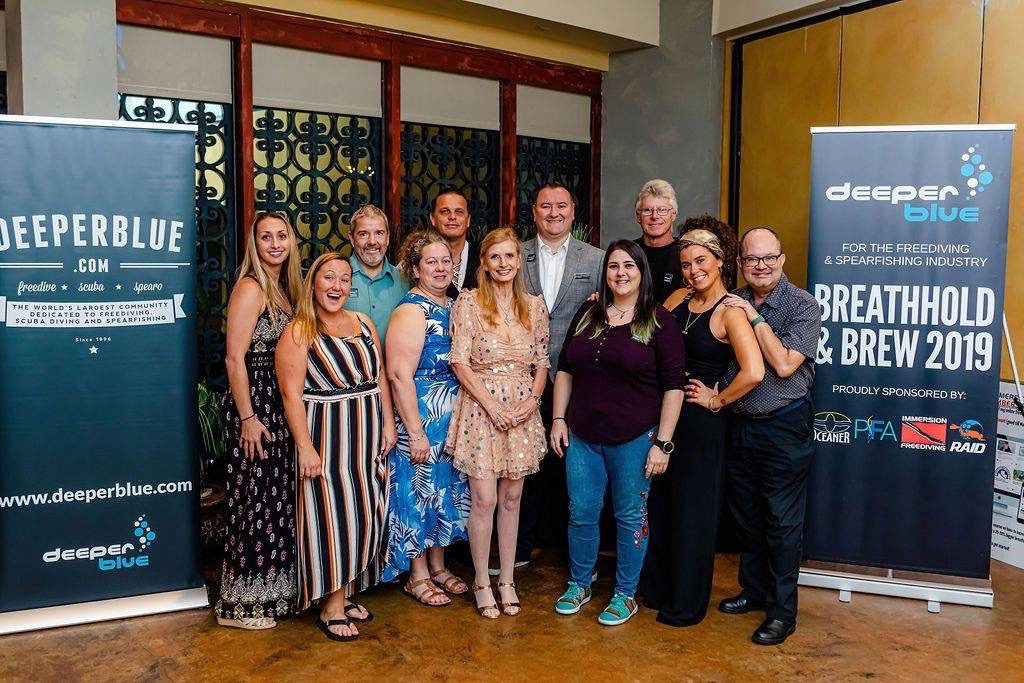
But you’ve really built a team with depth and enthusiasm—I’ve seen TeamDB turnout for DEMA. What’s your secret? How have you been able to assemble such an enthusiastic and productive team?
You know what? I thought about it many, many times and I wish I knew what the secret sauce was. Because I’m sure I could make a lot of money selling it to other people. In my non-diving career, I spend a lot of time building and driving high-performing teams. I pride myself on being able to bring people together for a common purpose and get them to perform at a high level.
For me, at the end of the day, it’s about community. The DeeperBlue staff, I call them TeamDB, that is #TeamDB. I give people the opportunity to do something they may never get to do otherwise. First to work as a journalist—you don’t have to be a trained journalist to work with DeeperBlue. We have editors who can help edit your work. If you’ve got a passion for diving and a desire to do things, you can absolutely volunteer to join us, and we will happily work with you.
Equally, if you want to contribute regularly, we do have paid positions where people contribute on a regular basis – not just writing but editing, social media, and much more… In any case, there are lots of opportunities. We get equipment to review all the time. Though as you can see, I’m surrounded by various bits of diving kit in my office at the moment, almost all of it goes out to other people. If there’s a free trip coming up, I’ll ask someone on the team to go and do it. It’s not for my benefit, I’ve been lucky and benefited many times over my nearly 40 years career in diving—well 35 if you count from my first dive at eight. I want other people to benefit. Because it’s not about me, it’s about the team.
You always seem to have a squad of enthusiastic staff at DEMA (the annual Diving Equipment and Marketing Association show).
When it comes to DEMA for example, we don’t pay for the team to attend. People make their own way there, but we find ways of subsidizing their accommodation and things. They get into the show for free with their DeeperBlue badge and it works as a real door opener in the industry. I generally look after my team with dinners and drinks. There is always one evening where we have a formal team dinner, break bread together and enjoy a glass of wine or whatever it is. All I ask for is half of their time to be doing stuff for DeeperBlue. The other half is, go and do what you want.
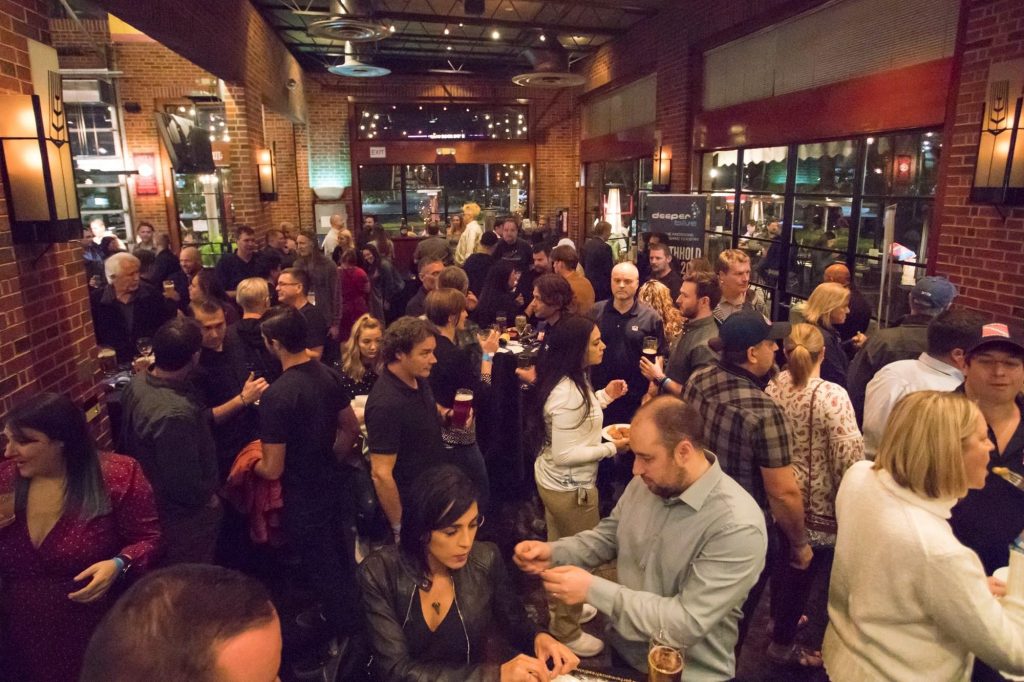
I have a fiercely loyal team, I’m immensely proud of every single person on the team and genuinely love and adore each of them. And equally, there is love that comes back. Everyone really enjoys being part of the community and the identity that it gives them.
You’ve had a career in the software industry all these years—your day job. And you’re not alone; diving is an industry with many part-time people. Has that been a challenge for you? Sometime to look forward to? A way to make ends meet? How would you characterize it?
It’s never really been a challenge. And I think because, even from day one, apart from those very first blog posts where I was writing stories about myself, it’s always been about other people working with me, contributing. I’ve always spread the load so to speak. I do the business, the marketing, the finance, and the advertising stuff, but the rest of it, the actual work; writing about diving, researching stories, and moderating and posting stuff on social media, those sorts of things, are done by other people. I do get to write and post on social media occasionally but primary responsibility is with other members of the team.
It has been a very sustainable model that can scale up and down. Like of course when COVID hit, we had to scale back operations quite significantly. But because it’s a combination of both volunteer and paid staff, I am able to scale up and down as needed and as permitted around it. So, from my perspective, juggling careers has never been an issue. It’s actually pretty cool. I always feel they are very complementary and they never really interfere with each other.
Well it’s always good to have a steady paycheck, which can be tricky in the diving biz! You expanded DeeperBlue’s coverage a few years ago to include dive travel, ocean advocacy, and more scuba. Was that out of economic necessity or opportunity? What drove that change to kind of broaden it out?
A couple of things happened. First in 2012, we became much more purposeful about how we covered diving. We used to cover news on a bit of an ad hoc basis. So, I formed a specific news team – led by the fantastic John Liang – to drive daily, weekly news that people could follow. Our readers felt the shift where it went from a site that you would check in on once-a-month sort of thing to having it become part of their weekly – even daily – news and education around diving. We want to educate, inform and inspire people around diving.
I feel strongly that ocean advocacy is really important. As divers we are the stewards and the ambassadors for the underwater world, and it’s really important to use the platform and reach we have with DeeperBlue to help educate and inform people about the broader ocean health, and basically, how we can do things better.
Dive travel is also really important. Diving generally is a travel-based sport; most people, sadly, don’t go and explore their own backyard. Instead, they like to get on a plane, or car or train, whatever, and explore somewhere a little bit more exotic. So not covering travel seemed like a massive gap to me. So we broadened out to cover it.
Conversely, one of the areas that is less prevalent for us these days is spearfishing. As a subset of freediving, spearfishing was always a very strong part of our identity in the early days. But it’s become less and less about that over time. We still cover it; we still do the occasional thing about spearfishing. But it’s become quite a polarizing topic.
We ran a story about sustainability and spearfishing last year and it got a lot of push back. Killing fish? Oh my God! It is polarizing to some, yes.
Yeah, I get it. Any type of hunting is polarizing these days. Spearfishing used to be much more prevalent on the site. It is less so now. Not by design, mind you, it’s just what the audience is into that they engage with. That’s one of the beauties of being a digital media organization. It’s very easy to adapt, to change things.
I noticed recently, maybe in the last year since COVID, that you are running a lot more industry news stories these days. Was that a conscious decision? How did that come about?
It’s more of necessity than anything else, if I’m being honest. COVID hit us very badly, almost fatally, just like the rest of the diving industry. I mean in the space of a week we lost 95% of our monthly income. What can you do? Our advertisers are also suffering and hurting, and everyone was finding it hard if not impossible to pay for advertising. What can you say to someone who is hurting as badly as you are? So, we made a conscious decision to scale back the features side of the site. But I protected and ring fenced the news team and continued to fund them personally.
I felt it was important putting in money personally to keep the team going because I feel it really important that we as a diving community stay connected to diving and the oceans, even when we were all sitting at home with masks on watching the Zombie Apocalypse and reveling in under-bathwater photography.
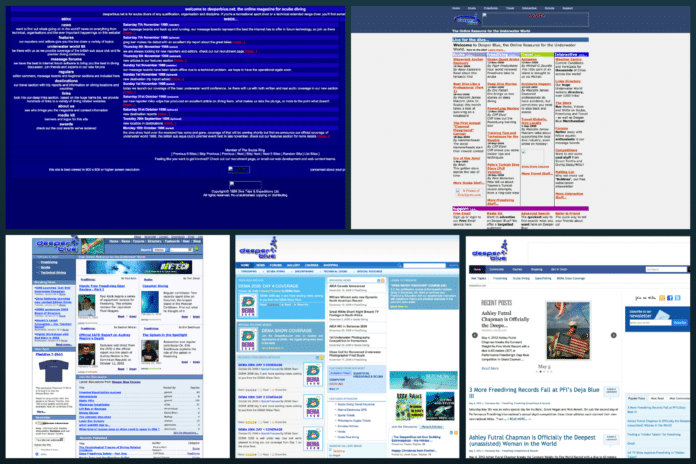
That was a bit of sheer brilliance on Fourth Element’s part! OMG, divers reαlly got creative!
It was too cool! I also feel it’s really important to continue to help educate and inspire people. So that’s why it pivoted to news rather than features. Now, as the industry starts recovering and the world continues to open up, then we’ll start reintroducing more features over time.
One of the exciting things that you did while we were all on lock-down was to start the DeeperBlue podcast, which is very cool. I want to ask you what you have learned from doing a podcast? Has helped you reach new users or provided more content and a different perspective for your existing audience to engage with?
The main thing I’ve learned is podcasts are blooming hard things to create and they take up a lot of time. That’s probably the primary thing that I’ve learned. That said, it’s another medium to communicate with the audience. Generally, no matter how people are engaged or want to engage with diving, we’re trying to be there and provide a means to it. And podcasts are something that is very popular. People love listening to podcasts.
You’ve created something unique to be sure.
I feel incredibly proud about that. In fact, I don’t think there’s any other podcast in the diving world that took the approach we did—the DeeperBlue approach. It’s a magazine format show so it covers news, we feature a short interview, there’s a top diving tip, and it has listener interaction through the best dive ever. Most traditional diving podcasts are longform interview type shows, a 45-minute to an hour-and-a-half conversation with someone, basically. Which is great. There’s lots of space for that. But we wanted to do something that covered lots of different things to get people interested and inspired again. And that’s being recognized. We’ve won a host of rewards including a Webby, which is very much considered the Oscars of the Internet. As you can imagine, I’m incredibly proud.
As you should be! You’re just finishing your first 25 years, what is your vision and plan for the next 25?
Well firstly, I hope we’ll still be around in 25 years! We’ll see. However, I don’t think our vision will change. It’s always been to educate, inform and inspire people around diving and help people get into the sport. And we will continue to do that. That will always be our mission.
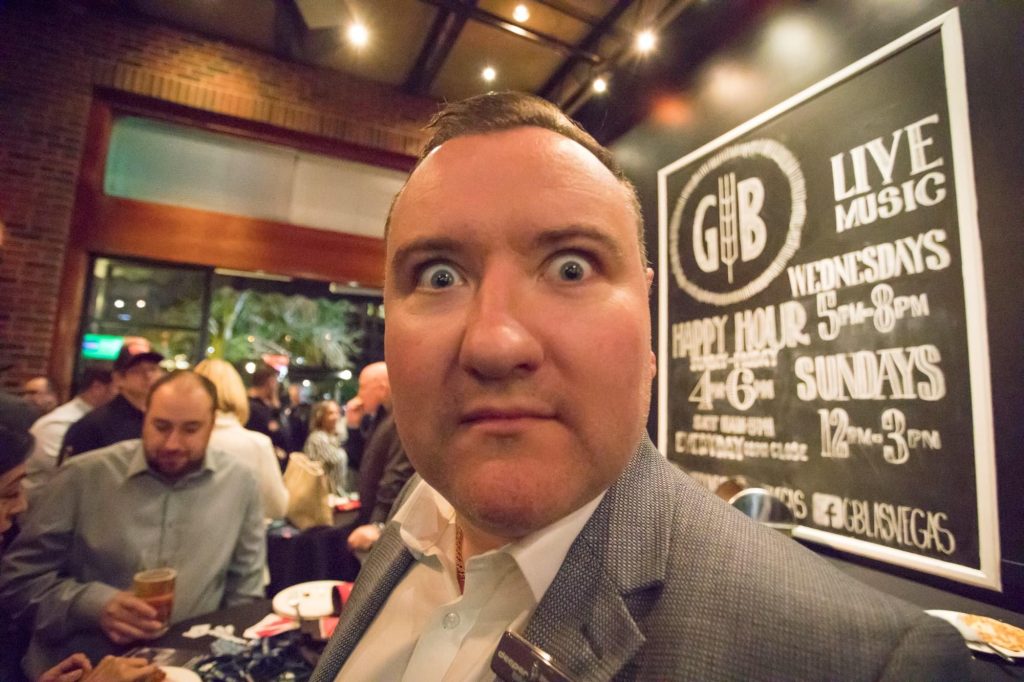
What will change is how we reach our audience. Whatever the next new thing is, the next Tik Tok or Snapchat, we will find a way to engage with it. Who knows? Folks are talking about the Meta-verse at the moment. Maybe we’ll all be sitting around with VR goggles on, chatting about our next dive.
Meta-Blue? As you know from your IT work, that’s likely not too far away. There are already several groups in diving working with VR.
Of course, the other bit of our mission, for me, is giving young people an opportunity to have a professional career in diving, that is broader than just diving. Being a journalist in the diving industry is quite exciting, and important. There are not many of us.
Tell me about it! We need more diving journalists!
I tell interested people, “Look, if you are interested in contributing and learning about this great thing called being a diving journalist, join us. We’ll help educate and sponsor you, and you can have a go at it.” We provide a low barrier to entry. That’s one thing I will continue to do. I want to give young people an opportunity to experience what it’s like to be a journalist in the diving world. You know, we have to do that, because you and I won’t be around forever.
We’re not? ;-(
It’s great to be able to give people that opportunity and the experience, so they can see if it’s something they want to do. I feel very proud that a lot of people who are journalists in the diving world, yourself included, have contributed or been part of DeeperBlue at some point or other in their career, which is fantastic.
You’ve really managed to create something unique and special in our industry, Stephan, as well as helping to turn out some of the next generation of diving journalists! The community is in your debt!
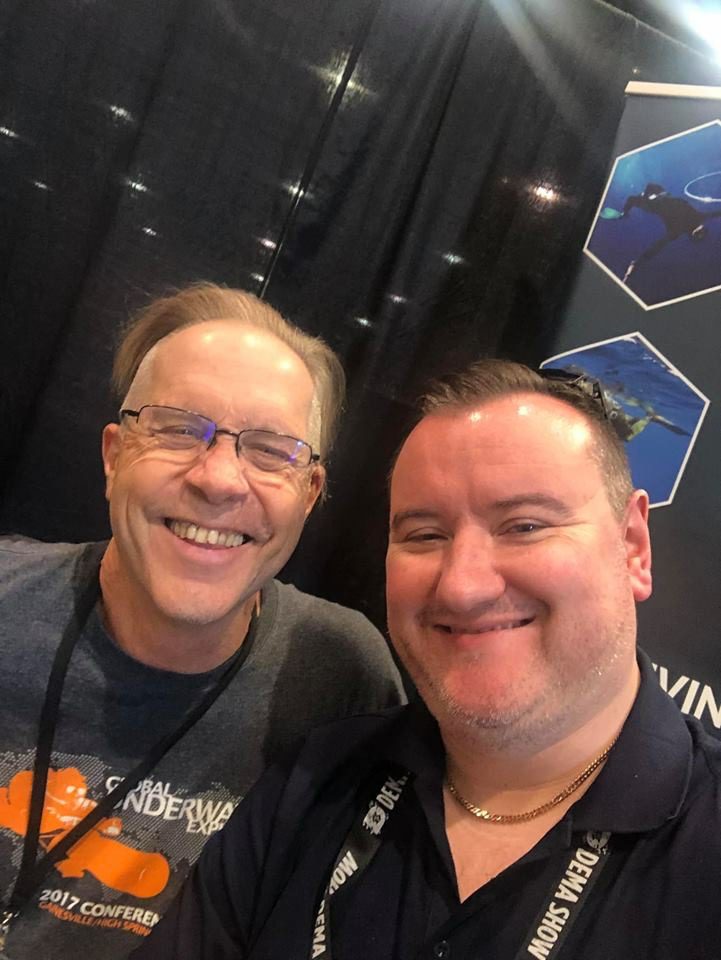
Thank you, mate. Although it’s only been 50% of my career, I’ve always taken it very seriously. We take responsibility as a global media organization and have all sorts of guidelines that we follow to make sure that we are maintaining our journalistic integrity, and doing things right. We don’t always get it right, but if we do make a mistake, we analyze what we did wrong and learn from it. Just like any media organization needs to do.
I feel proud and privileged to be in the position to be able to help and inspire so many people. Hopefully we don’t annoy too many people along the way. One of the challenges of being a public-facing organization is that we do, unfortunately, annoy people sometimes. But yeah, I feel incredibly proud. Again, it’s not about me. It’s about the team. As I’ve said many times and will continue to say, I stand on the shoulders of giants.
Dive Deeper:
DeeperBlue (April 2020): The Day The Diving Stood Still by Stephen Whelan and Michael Menduno. Is the diving industry facing an existential threat from coronavirus?
DeeperBlue (SEP 2017): DeeperBlue At 21: How It All Started (SEP 2017)
DeeperBlue (OCT 2017): DeeperBlue At 21: Perspectives From The Land And The Sea
Podcasts featuring Stephen Whelan/DeeperBlue.com:
ScubaGuru: LXD 015 : Stephan Whelan – Founder of DeeperBlue.com
Big Scuba Podcast: Episode 54 Stephan Whelan
Northern Diver Podbean: FANCY A BREW? (Series 2 Episode 1) – Talking to Stephan Whelan the Founder of DeeperBlue.com
Dive In: The Podcast: I Stand on The Shoulders of Giants
Big Deep-An Ocean Podcast: Divers Unmasked: Stephan Whelan, founder of DeeperBlue.com, on the evolution of the diving community and who divers really are
Web Archives of early DeeperBlue:
1998: https://web.archive.org/web/19981111184403/http://www.deeperblue.net/
2000:https://web.archive.org/web/20001018112051/http://www.deeperblue.net/html/index.shtml
2003: http://web.archive.org/web/20030208014819/http://www.deeperblue.net/
2008: https://web.archive.org/web/20081218172026/http://www.deeperblue.com/2012: https://web.archive.org/web/20120507031528/http://www.deeperblue.com/
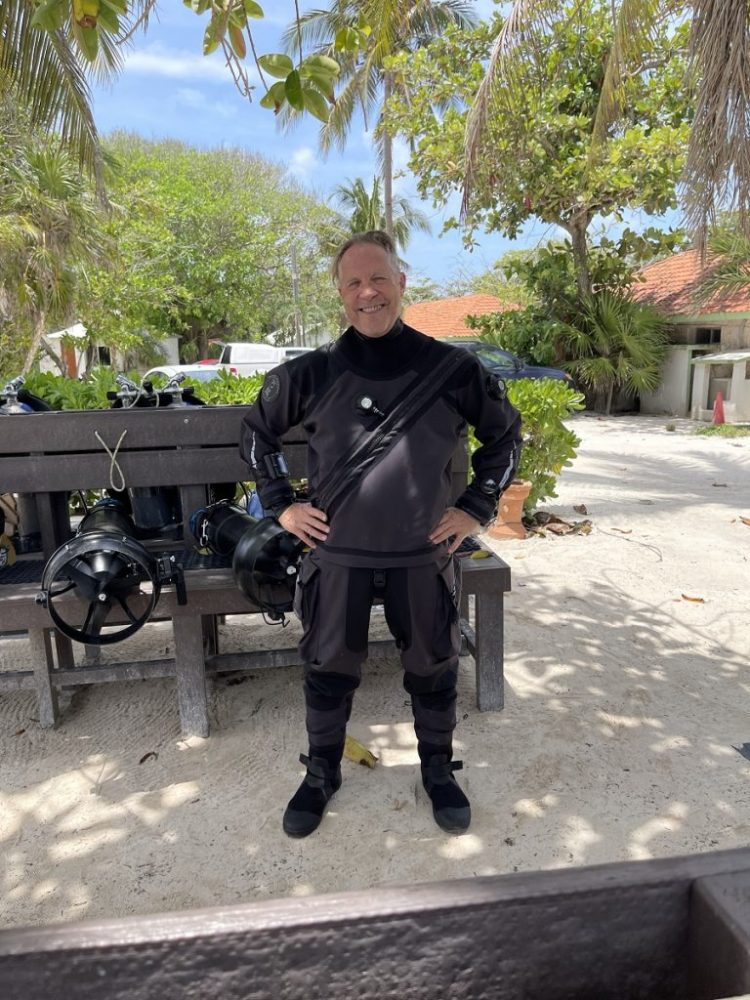
Michael Menduno/M2 is InDepth’s editor-in-chief and an award-winning journalist and technologist who has written about diving and diving technology for more than 30 years. He coined the term “technical diving.” His magazine “aquaCORPS: The Journal for Technical Diving” (1990-1996) helped usher tech diving into mainstream sports diving, and he produced the first tek.Conferences and Rebreather Forums 1.0 & 2.0. In addition to InDepth, Menduno serves as an editor/reporter for DAN Europe’s Alert Diver magazine, a contributing editor for X-Ray mag, and writes for DeeperBlue.com. He is on the board of the Historical Diving Society (USA), and a member of the Rebreather Training Council.

